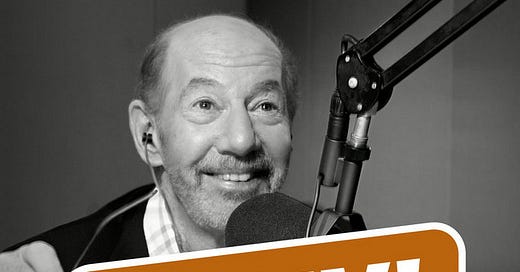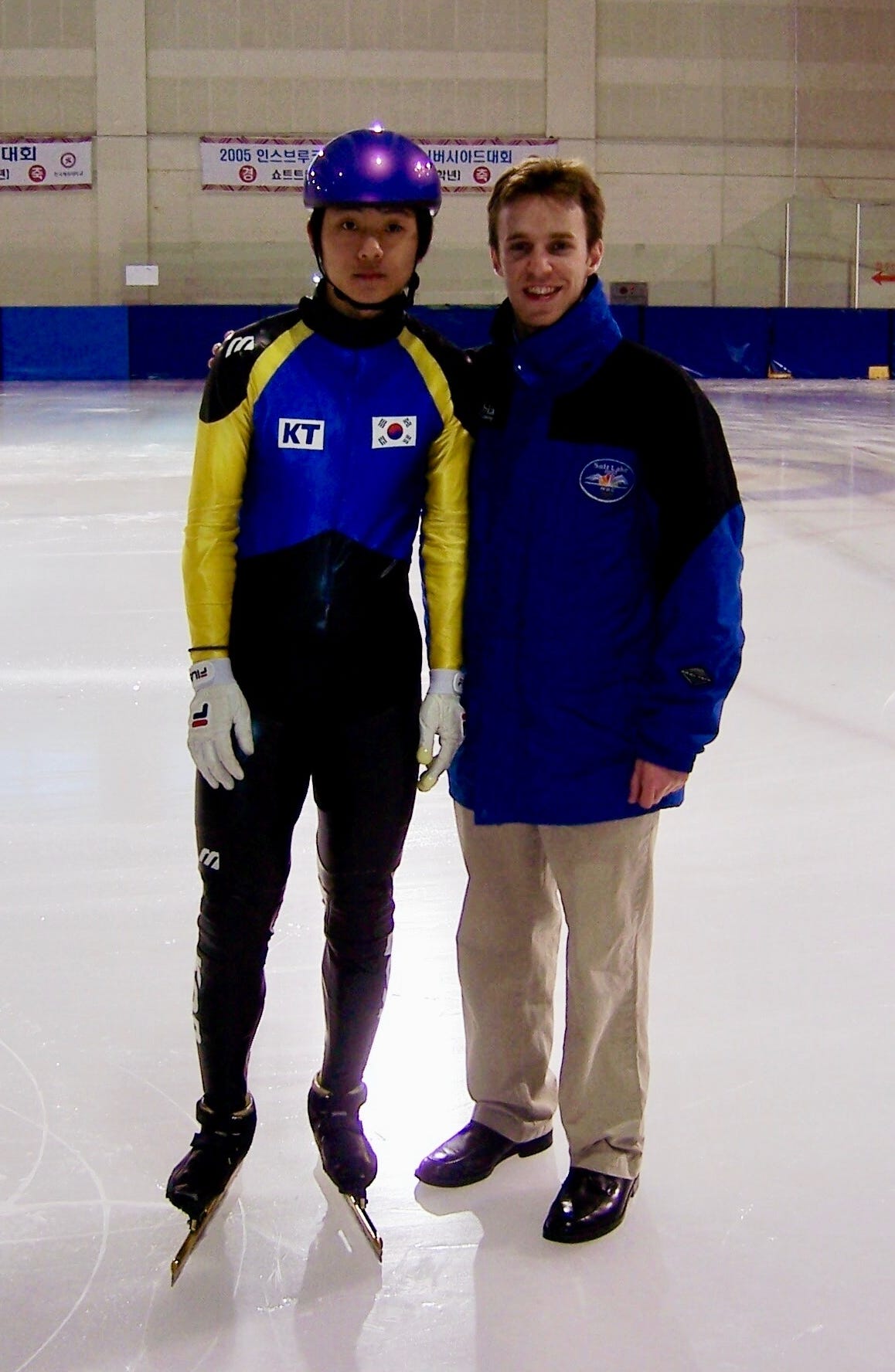The Best…
…Podcast Episode I Listened to This Week
“Dinner with Harvey” — The Tony Kornheiser Show, April 30, 2025
This is a little bit of a cheat because this episode of The Tony Kornheiser Show was from a couple weeks ago.
One of Tony’s guests that day, Washington Post columnist Barry Svrluga, had just finished covering two events of great historical significance in the sports world: Alex Ovechkin breaking Wayne Gretzky’s record for the most career goals in NHL history; and Rory McIlroy winning the Masters, making him just the sixth golfer to ever achieve the career grand slam.
That prompted a conversation about how every sports columnist has a personal “top five” — their list of the most thrilling events they’ve ever seen in person.
Of course, as someone who’s worked in sports for more than 20 years (and has been a fan for 40), I got to thinking about which events would make my own list.
I’ve got some good candidates, featuring all-time great athletes and iconic moments on the biggest stages. But the most singularly bonkers event on my list is one that, if it were to happen today, would be an instant viral sensation.
The first time I ever attended an Olympics was in 2002, when the Winter Games were held in Salt Lake City. Less than a year out of college, I was working on NBC’s coverage as a researcher. My shift was during the day, so I usually didn’t have much energy to go to events at night.
But one evening, I was offered a ticket to go to a session of short track speed skating at the Salt Lake Ice Center, which wasn’t too far from the apartment where I was staying. I jumped at the opportunity, because I knew I’d get to see Apolo Anton Ohno.
Often when the Olympics roll around, an American athlete from an esoteric sport will be presented to the country as a star, even if very few people have heard of them or know anything about their sport.
In 2002, Apolo was such an athlete.
Short track was a relatively new sport on the Olympic program, and it was largely dominated by athletes from South Korea, China, and Canada. But Apolo was 19 years old, was already a world champion, and, as a native of Seattle, was poised to become a home country hero in Salt Lake City.
Most of all, though, he looked cool. He had a soul patch, long brown hair held in place by a bandana, and he skated with uncommon charisma and style.
NBC heavily promoted him before the Games and Sports Illustrated put him on its cover. The Olympic hype machine was in overdrive.
All of which is to say that — fatigue be damned — I was excited to see him race in the men’s 1000m on that February night in 2002.
From my seat (about 20 rows up from the ice), I watched as Apolo won his quarterfinal and semifinal races to reach the final. There, he would face off against a trio of top contenders: 16-year-old South Korean prodigy Ahn Hyun-Soo and past world champions Li Jiajun of China and Mathieu Turcotte of Canada.
There was also a fifth athlete in the final, some guy from Australia named Steven Bradbury.
Bradbury stood out for his spiky bleach-blond hair and distinctive eyebrow ring. At 28 years old and 5-foot-10, he was also older and taller than most of the other competitors. But because Australia had never won a Winter Olympic gold medal in any sport before, nobody paid much attention to him. He was an oddity, the definition of a sports novelty act.
Sure enough, as the race unfolded, the four strongest contenders moved to the front, jockeying for position as they bobbed and weaved in and out of each other’s way. Bradbury, who lacked the raw speed to compete, fell 15 meters behind.
With two laps to go, Apolo surged into the lead, bringing the crowd to its feet. On the video, you can hear the fans — me included — going absolutely bananas as Apolo maintains his slim lead into the final lap.
What a story this would be for our teenage American hero to make good on all the hype! We may not have known what short track was three weeks ago, but we live and breathe it now!
With just one turn remaining and excitement in the arena reaching a crescendo, the race suddenly morphed from a high-speed chase into a multi-car crash.
It all began when Li, the Chinese skater, bumped into Apolo, then fell to the ice and hurtled into the boards. Apolo wobbled but stayed on his feet for the moment. Ahn, the South Korean, cut off Apolo to briefly take the lead but then lost his balance and wiped out, causing Apolo and the Canadian Turcotte to careen into the boards as well.
With the finish line directly in front of me, I had a perfect view to see all four of the top skaters sprawled out on the ice, leaving just one man upright: Steven Bradbury. The Australian had been so far behind, he was able to watch the mayhem happen in front of him, then coolly zoomed from last place to gold.
You truly had to see it to believe it.
Ted Robinson, the longtime NBC Sports commentator and a loyal reader of this newsletter, has a succinct way of summing up the sport’s utter unpredictability and even randomness: “That’s short track!” (It’s not a bad metaphor for life either.)
That night in Salt Lake City was the ultimate “that’s short track” moment and one I’ll never forget.
Here’s Ted’s call of the race on NBC (I wish the clip were longer). Here’s the call on Australian TV. And if you really want to go deeper on Bradbury, here are a few minutes on his remarkable story, as commissioned for Olympic Channel by reader Greg G.
A few postscripts:
Apolo earned a silver medal in that memorable race by swiping a skate across the finish line while on his hands and knees. In his next event, the men’s 1500m, he would be awarded his first career gold medal when Ahn was disqualified near the conclusion of the final. The controversial result was met with anger in South Korea, where Apolo became public enemy #1.
Three years after watching him from the stands, I found myself in Ahn’s living room in Seoul, where I met him, his parents, and his younger siblings. I was there to interview him for an NBC profile to air during the 2006 Winter Olympics in Torino. The piece ended up turning into a story about tensions between the U.S. and South Korea at the Olympics, highlighted by the Ohno-Ahn rivalry.
Though Ahn left Salt Lake City without a medal, he turned out okay. He went on to become the most decorated skater in short track history, even after switching his citizenship to Russia and changing his name to Viktor Ahn.
And what of Steven Bradbury? Well, naturally, he retired after the Salt Lake Games, returning to Australia as a folk hero. He probably hasn’t had to pay his own bar tab ever since.




I look forward to reading the other 4 from your list someday!